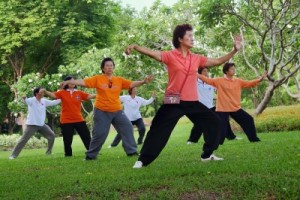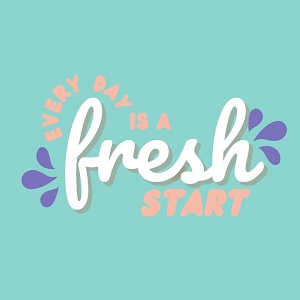 The ancient Chinese practice, Tai Chi Chuan, combines meditation, Traditional Chinese Medicine and martial arts.
The ancient Chinese practice, Tai Chi Chuan, combines meditation, Traditional Chinese Medicine and martial arts.
Most often referred to as Tai Chi (“tie–chee”), the practice consists of slow fluid movements done with complete concentration. This approach allows practitioners to fully exercise the mind as well as the body.
Tai Chi’s focus on mental health, physical fitness, and general well-being make it an excellent activity for seniors seeking to maintain functional fitness levels and a positive mental outlook.
By the Numbers
- Tai Chi is a low-impact form of exercise that is easy on the joints, a key benefit for seniors. It can even be done from a wheelchair in an altered mode.
- Tai Chi requires no equipment and may be done with a minimal amount of space. These characteristics make this form of exercise especially accessible to seniors. They may learn the forms (poses) and transitions by attending classes in their community and practice at home whenever they wish.
- In group form, Tai Chi allows people to meet and socialize and bond, and socialization with peers is well known to improve quality of life for seniors, as well as their emotional state that in turn helps improve their physical health.
- Many benefits are experienced by seniors who practice Tai Chi. They gain strength, endurance and improved balance.
- Tai chi improves posture and spine health, helping to decrease back pain and thereby improve mobility.
- Studies have shown Tai Chi to improve brain power and memory. In one study, subjects who did Tai Chi were able to increase gray matter in the brain by 40%.
- They also experience reduced bone loss. Although low-impact, tai chi is still a weight bearing form of exercise as practitioners move with, against, and through their own body weight. Weight bearing exercise builds and maintains bone density. This is an important benefit in the case of women who are menopausal and at increased risk of developing osteoporosis. These two benefits are especially important for seniors 65 years old or older.
According to the Centers for Disease Control and Prevention, each year one out of every three adults aged 65 or older experiences a fall. Falls are more likely to cause significant injuries, head traumas, and broken bones in the elderly.
The “Surgeon General’s Report on Bone Health and Osteoporosis: What It Means to You.” states elderly people who suffer a broken hip are four times more likely to die within in three months following the injury.
Elderly people who recover from hip fractures experience continued health complications for the remainder of their lives. Tai Chi provides a simple, enjoyable, and accessible way to offset and prevent these health concerns for seniors.
- Beyond bone health, tai chi builds strength in the legs and lower body. It also strengthens the ankles and knees, which increases balance and stability in movement. Tai chi also alleviates the physical symptoms of stress.
- One study showed that Tai Chi helps to improve hand eye coordination in seniors, which improves quality of life and general mobility.
- The integration of mind and body during a tai chi session also supports a general sense of well being in practitioners. This aspect of the practice also improves mental capability and concentration.
- Tai Chi improves the condition of seniors with Multiple Sclerosis, Alzheimer’s, and Parkinson’s diseases. Unlike many forms of exercise, Tai Chi builds energy as endorphins are released during the practice instead of causing energy loss.
- During practice, the linking of breath to movement improves cardiovascular health by encouraging deep breathing. People who practice tai chi generally experience lowered blood pressure.
- Tai Chi has also been shown to help with pain relief from conditions like arthritis.
- Tai chi also supports recovery following a heart attack or stroke. In addition, has been shown to reduce risk of stroke in high-risk patients.
Bottom Line
Tai Chi is ideal for seniors seeking a low-impact form of exercise with multiple benefits. If they are in good health, Tai Chi allows them to retain high levels of functional fitness. Improved mobility, bone health, memory and brain power are key elements that support he wellness of those in their retirement years.
This becomes especially important when reviewing the statistics regarding the number of seniors who wish to “age in place,” continuing to live independently in their homes well beyond retirement.
According to the American Association of Retired People (AARP), 87 percent of adults 65 years old or older want to remain in their homes and communities as they age.
The U.S. population’s percentage of individuals aged 65 years or older is expected to approximately double between 2006 and 2030 from 37 million to 71.5 million individuals.
A simple practice like Tai Chi can help make the extended golden years Americans are experiencing great in quality as well as quantity.





